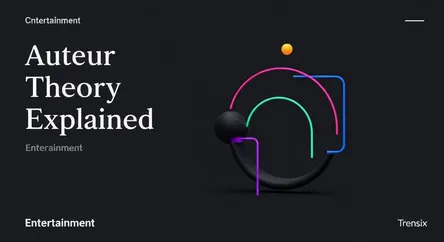Entertainment
Auteur Theory Explained

Discover Auteur Theory, the film concept that views the director as the primary creative force, or 'author,' behind a movie. Learn why it's key.
What is it?
Auteur Theory is a concept in film criticism that views the director as the primary creative force and "author" of a film. It argues that a film reflects the director's personal vision, style, and thematic concerns, much like a novel reflects its author. Originating with French critics of the "Cahiers du Cinéma" in the 1950s, like François Truffaut, the theory champions directors who maintain a distinctive, recognizable style across their body of work. Figures like Alfred Hitchcock, Stanley Kubrick, and modern directors like Wes Anderson are often cited as prime examples of auteurs.
Why is it trending?
The theory remains a cornerstone of film analysis. Its relevance surges with every major release from a celebrated director, from Christopher Nolan's complex narratives to Greta Gerwig's unique voice. Online film communities frequently use the auteur lens to dissect new works and anticipate future projects. It also fuels ongoing debates about artistic integrity versus studio interference, especially within large franchises. The question of whether a director can truly be an "auteur" within the constraints of a blockbuster keeps the theory perpetually in the cultural conversation.
How does it affect people?
Auteur Theory fundamentally changes how people watch movies. It encourages audiences to move beyond just the story and actors, and instead pay attention to the director's craft—how shots are framed, the use of color, and recurring themes. This perspective elevates film from mere entertainment to an art form, inviting deeper analysis and appreciation. It provides viewers with a framework for understanding a director's entire filmography, allowing them to trace a filmmaker's artistic evolution and develop a more sophisticated relationship with cinema as a whole.